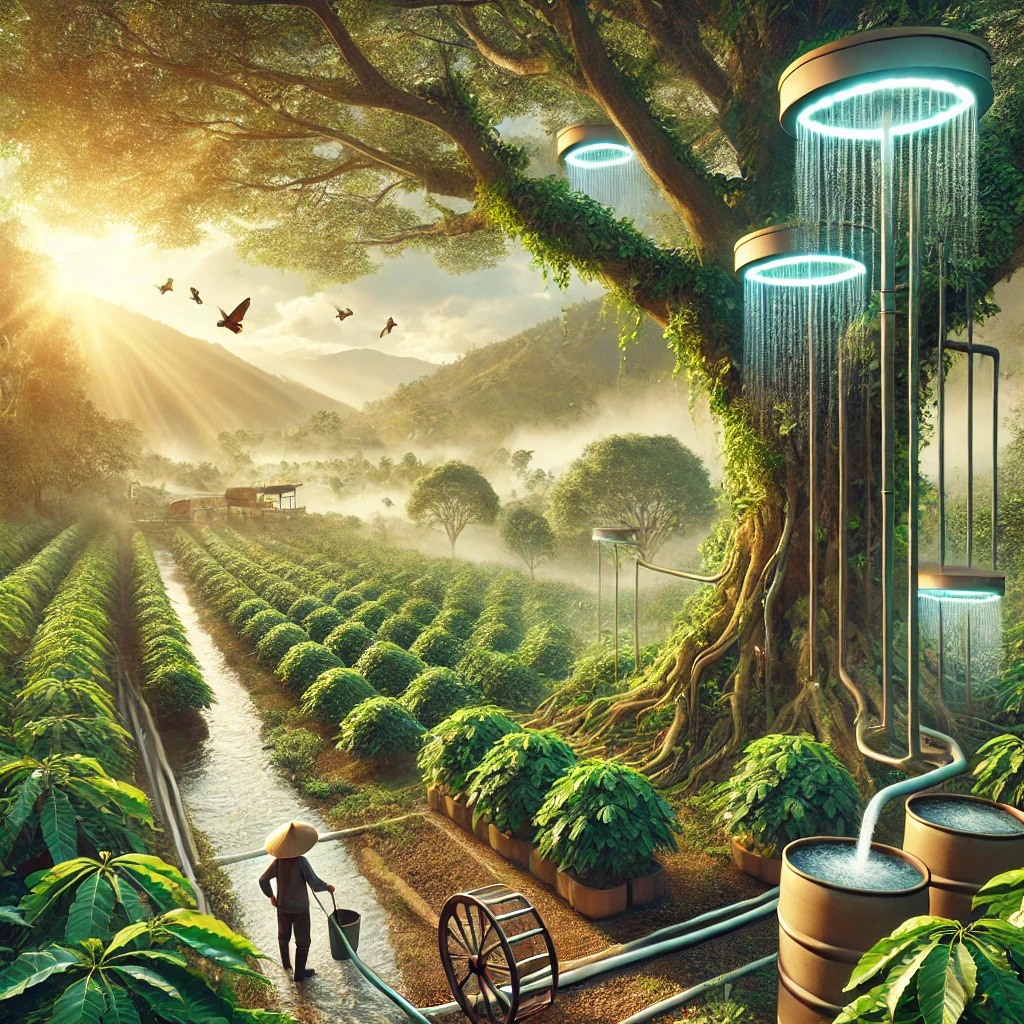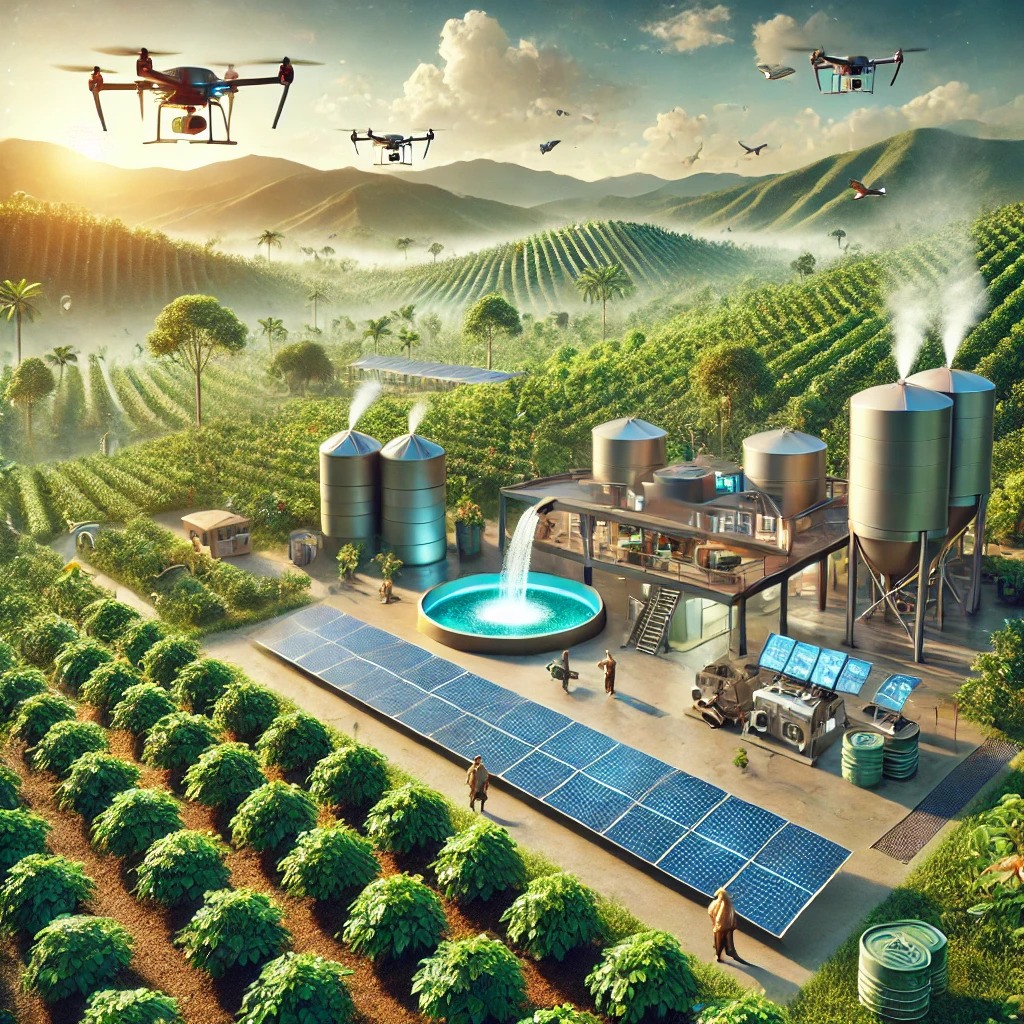
Water Stewardship in Coffee Farming: A Path to Sustainability
Introduction
Water is the lifeblood of coffee farming, playing a crucial role in irrigation, processing, and soil health. However, traditional coffee farming methods are incredibly water-intensive, leading to resource depletion, pollution, and sustainability challenges. With the growing threat of climate change and increasing water scarcity, the coffee industry must adopt sustainable water management practices to secure its future.
From high-efficiency irrigation systems to water-conscious processing methods, farmers, companies, and consumers must work together to preserve this vital resource while ensuring the best coffee quality.
The Challenge: Water Waste in Coffee Farming
Traditional coffee farming relies heavily on wet processing, where beans are fermented and washed using large amounts of water—up to 40 liters per kilogram of coffee. This method is particularly common in specialty coffee production, where clean flavors are prioritized. However, excessive water use strains local resources and produces wastewater that can contaminate rivers and groundwater.
Beyond processing, inefficient irrigation methods like flood irrigation result in high levels of runoff and water loss. In regions like Ethiopia and Central America, where rainfall patterns are increasingly unpredictable, these unsustainable practices put coffee farming at risk. With global temperatures rising, coffee-growing regions are experiencing more extreme droughts, threatening both crop yields and farmer livelihoods.
Sustainable Water Management in Coffee Farming
To tackle water challenges, coffee farms worldwide are adopting innovative, eco-friendly water conservation strategies.
One of the most effective methods is drip irrigation, which delivers water directly to plant roots, reducing evaporation and runoff by up to 60% compared to traditional methods. In places where water scarcity is severe, rainwater harvesting is becoming a game-changer, allowing farmers to collect and store water for use during dry seasons.
Beyond cultivation, processing innovations are helping reduce water consumption. Eco-pulping machines, for instance, use up to 80% less water than traditional wet processing, while fermentation tanks with recirculating water systems enable significant water recycling. Natural dry processing, which requires no water, is also being increasingly adopted, particularly in regions where water access is limited.
Industry Efforts and Sustainable Certifications
Leading coffee companies and organizations are actively working to promote sustainable water stewardship. Certifications such as Rainforest Alliance, UTZ, and Fair Trade now require farms to implement water conservation techniques. In Brazil, farms certified by Rainforest Alliance reported 20% lower water usage due to improved efficiency.
Global initiatives like The Coffee & Climate Initiative and The Blue Harvest Project are working directly with farmers to protect water sources, improve water efficiency, and support communities in coffee-growing regions. Keurig Dr Pepper’s collaboration with Blue Harvest has provided clean water solutions to over 200 coffee-growing communities in Central America, showcasing how large-scale partnerships can drive real impact.
The Future of Water Stewardship in Coffee Farming
The future of sustainable coffee farming lies in the adoption of technology, better policies, and consumer awareness. AI-powered precision irrigation systems are helping farmers optimize water usage, ensuring only the necessary amount is delivered to crops. Meanwhile, blockchain technology is being explored to track and verify sustainable water practices, ensuring transparency in the supply chain.
Governments and coffee companies must enforce responsible water management policies, while consumers can support sustainability by choosing ethically sourced coffee. Opting for certified sustainable coffee like specialty coffee, arabica, and trade coffee not only ensures a better cup of coffee but also contributes to global water conservation efforts.
Conclusion
Water stewardship in coffee farming is not just an environmental necessity—it is key to preserving the industry’s future. With climate change accelerating, coffee farmers must adopt smarter irrigation techniques, eco-friendly processing, and sustainability certifications to reduce water waste. Consumers, businesses, and policymakers all play a role in ensuring that coffee farming remains both economically viable and environmentally responsible.
By making conscious choices today, we can secure the future of coffee farming, ensuring that future generations can continue to enjoy their favorite espresso, mocha coffee, and specialty brews without harming the planet.
#SustainableCoffee #WaterConservation #BestCoffee #CoffeeRoasteryNearMe #Arabica #TradeCoffee #CoffeeDrinkTypes




